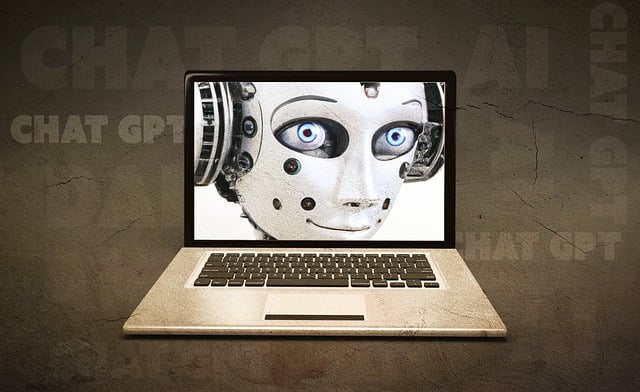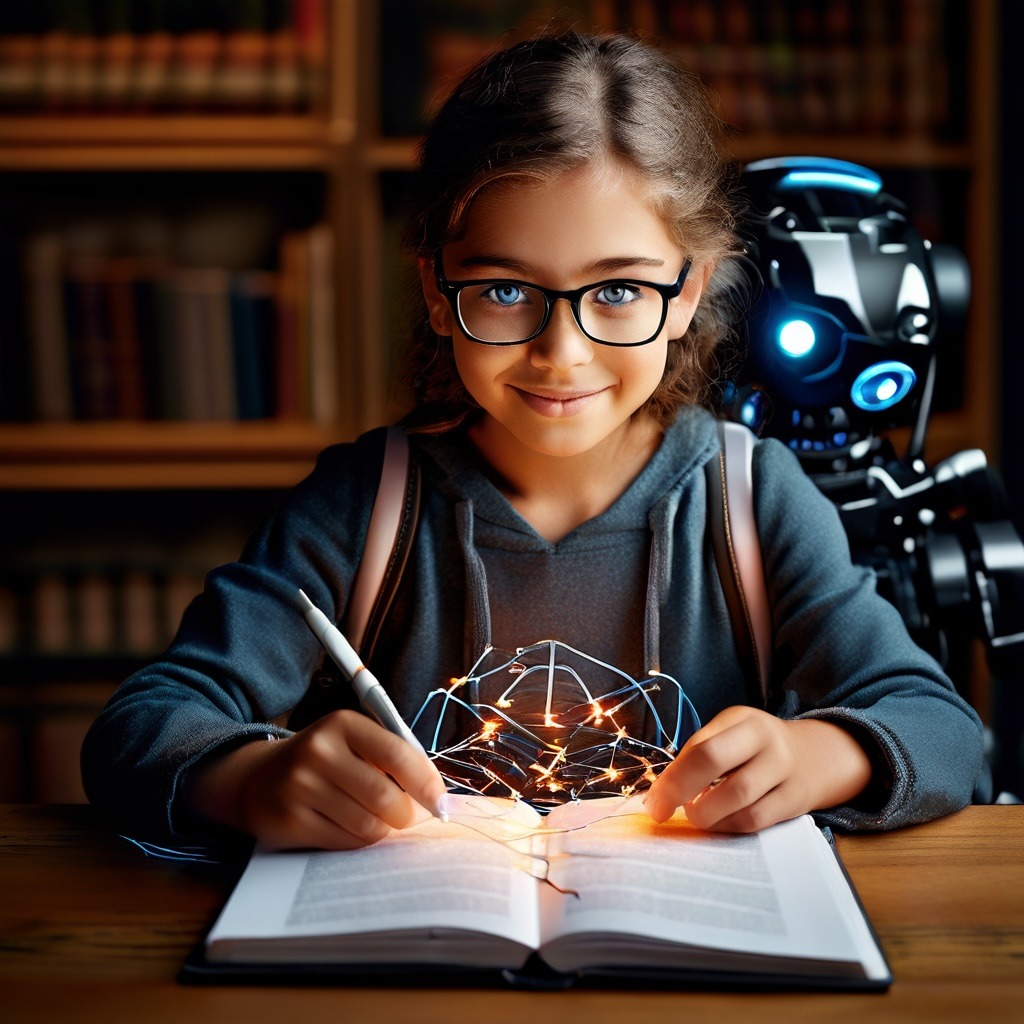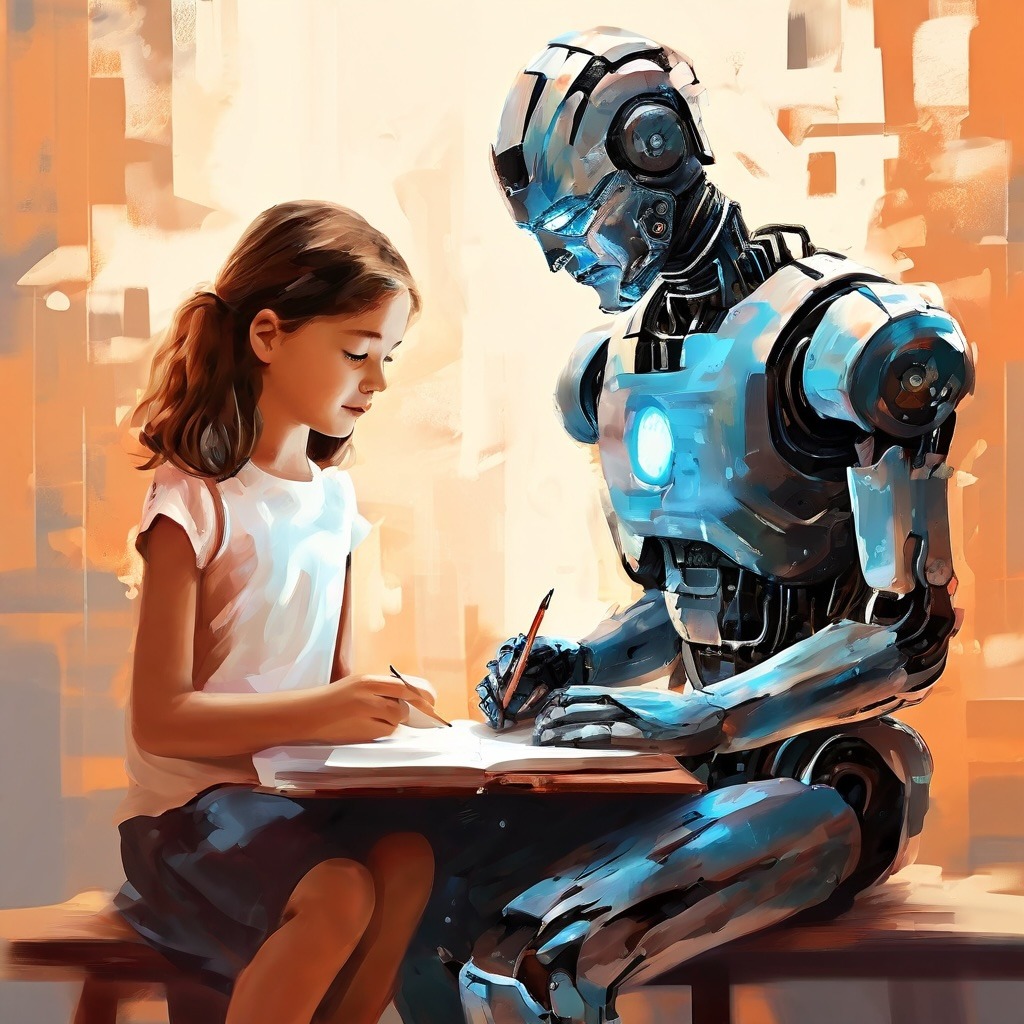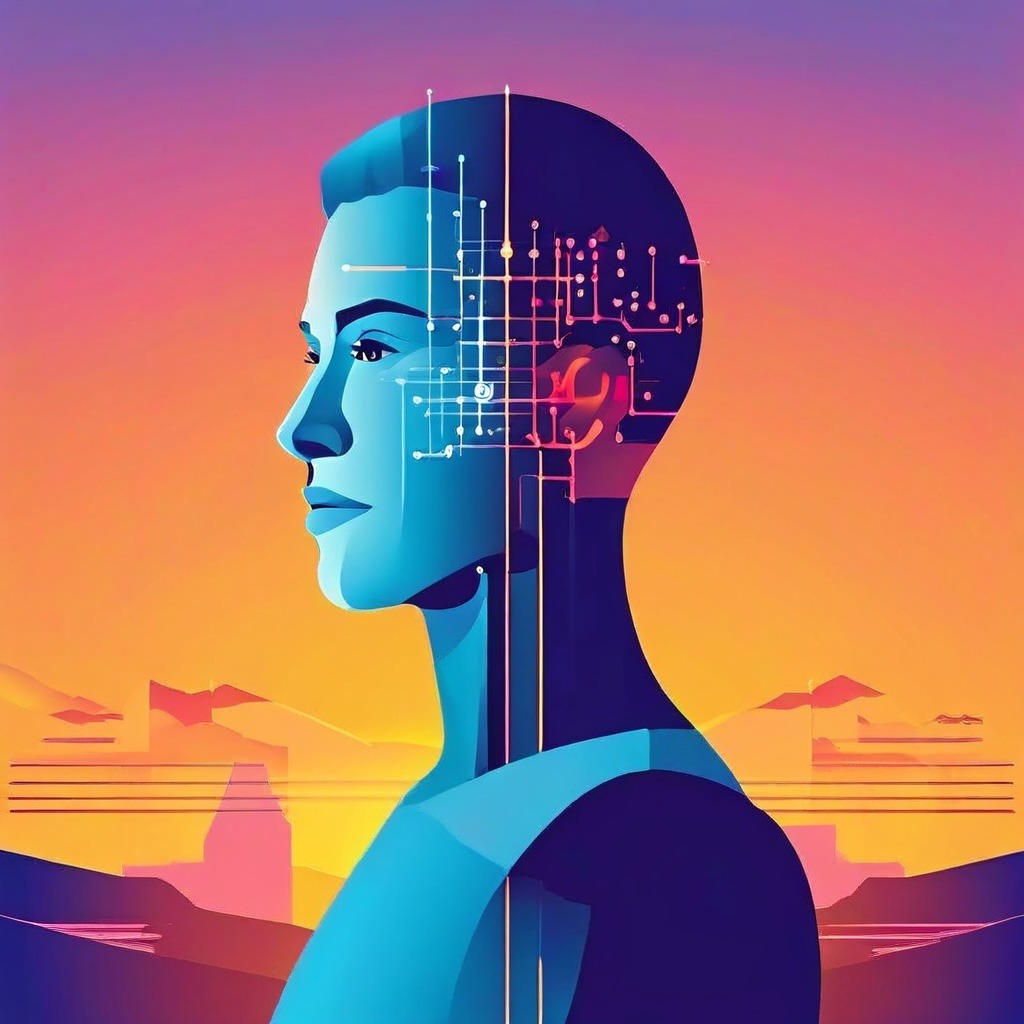Picture this: It’s the year 2030. You wake up in the morning, and your AI-powered alarm clock has already adjusted itself based on your sleep patterns. Your smart fridge has ordered groceries, your robo-vacuum has cleaned the house, and your AI assistant has scheduled your day. You sit down for breakfast, and as you reach for your spoon, you pause. “Wait,” you think to yourself, “how do I use this again?”
Okay, maybe that’s a bit extreme. But as artificial intelligence continues its rapid march into every aspect of our lives, it’s worth asking: Is all this helpful tech actually making us, well, dumber?
Now, before you rush to ask ChatGPT for the answer (because let’s face it, that’s probably what you were about to do), let’s embark on a hilarious journey into the world of artificial stupidity – I mean, intelligence – and explore how our silicon-brained overlords might be turning our gray matter into mush.
The Convenience Conundrum: When Easy Street Leads to Dumb Town
Remember the good old days when we had to use our brains for… well, everything? Pepperidge Farm remembers, and so does that dusty road atlas in your glove compartment. Thanks to AI, we now live in a world of unprecedented convenience. But is this convenience coming at the cost of our cognitive abilities? Let’s look at some examples:
- GPS Navigation: The Death of Directional Skills
Once upon a time, humans possessed an almost magical ability to navigate using nothing but their wits, the position of the sun, and maybe a crumpled map from the gas station. We memorized routes, understood the concept of north, and could proudly proclaim, “I know a shortcut!”
Enter GPS. Suddenly, we’re all reduced to obedient robots, blindly following a soothing voice that tells us to “turn left in 200 meters.” The result? A generation of drivers who get lost in their own driveways if their phone batteries die.
“Honey, I can’t find the bathroom. Google Maps says we don’t have one!”
- Autocorrect: Spelling’s Silent Assassin
Remember when misspelling a word was a source of shame? When we actually had to learn how to spell “necessary” and “bureaucracy”? Those days are as dead as the dodo, thanks to our friendly neighborhood autocorrect.
Now, we confidently tap away on our phones, secure in the knowledge that AI will fix our atrocious spelling. “Definately” becomes “definitely,” “seperate” becomes “separate,” and suddenly we all look like spelling bee champions. Until, of course, we have to write something by hand.
“Dear Grandma, Thank you for the birhtday preset. It was very niec of you. Love, yoru grandchild.”
- Voice Assistants: Your Personal Know-It-All
“Hey Siri, what’s the capital of France?” “Alexa, how many ounces are in a cup?” “OK Google, what’s 7 times 8?”
Voice assistants have become our external brains, always ready to answer life’s burning questions. Need to know the weather? Ask Alexa. Can’t remember the name of that actor in that movie about the thing? Google’s got your back.
The problem? We’re outsourcing our memory and basic knowledge to these AI assistants. Why bother remembering anything when you can just ask a machine? It’s like having a know-it-all friend who’s always available, never sleeps, and doesn’t get annoyed when you ask the same question for the hundredth time.
“Siri, remind me… what’s my name again?”
The Great Brain Atrophy: Use It or Lose It (To AI)
As we gleefully hand over more and more cognitive tasks to our AI helpers, are we risking a great brain atrophy? Let’s explore some scenarios that might hit a little too close to home:
- Math Skills: The Calculator Crutch
Remember long division? Yeah, me neither. Thanks to calculators and AI-powered math apps, we’ve effectively outsourced our ability to do basic arithmetic. Who needs mental math when you have a supercomputer in your pocket?
Picture this: You’re out to dinner with friends, and it’s time to split the bill. Suddenly, everyone freezes. Eyes dart nervously. Foreheads begin to sweat. Without a calculator app, you’re all helpless. The waiter returns to find a table of supposedly educated adults staring blankly at a receipt, mumbling about percentages and trying to divide by counting on their fingers.
“Okay, if we all put in $20, and the bill is $163.87, and we want to leave a 20% tip… carry the one… does anyone have a protractor?”
- Memory: The Digital Amnesia Epidemic
Why remember anything when your phone can remember it for you? Birthdays, appointments, phone numbers – they all live in the cloud now. Our brains, relieved of these mundane storage tasks, are free to focus on more important things… like remembering our Netflix password.
The downside? We’re becoming increasingly reliant on our devices to function as normal humans. Forget your phone at home, and suddenly you’re adrift in a sea of uncertainty.
“I’m sorry, I can’t come to your birthday party. My phone didn’t remind me, so technically, it’s not happening.”
- Decision-Making: When Choosing Becomes Too Hard
With AI algorithms curating our music playlists, suggesting our next Netflix binge, and even helping us swipe right or left on dating apps, are we losing our ability to make decisions?
Imagine a world where every choice, no matter how small, requires AI input:
“Alexa, should I wear the blue shirt or the red shirt today?” “Siri, do I like pineapple on pizza?” “Google, is it socially acceptable to wear sweatpants to this wedding?”
As we continue to rely on AI for more and more decisions, we risk becoming like those people who can’t decide what to eat without consulting Yelp reviews, ingredient lists, calorie counts, and the alignment of the stars.
“I’m sorry, I can’t decide whether to continue this blog post without consulting my AI writing assistant. One moment, please…”
The Rise of the AI Know-It-Alls: When Instant Knowledge Leads to Instant Headaches
Remember when being knowledgeable meant spending years reading books, having meaningful conversations, and accumulating life experiences? Well, those days are as outdated as a flip phone at a tech convention. Thanks to AI, we now have instant access to a world of information. But is this turning us into pseudo-intellectuals with the depth of a kiddie pool? Let’s dive into some hilarious scenarios:
- The Party Bore Who Just Asks AI for Facts
Picture this: You’re at a party, engaged in a lively discussion about climate change. Suddenly, that guy (there’s always that guy) whips out his phone and starts rattling off facts faster than an auctioneer on espresso.
“Did you know that the average global temperature has increased by 0.08°C per decade since 1880? Oh, and polar bears are expected to decline by 30% by 2050!”
Congratulations, you’re now talking to a human Google. He might have all the facts, but his personality has all the charm of a technical manual. The ability to regurgitate information isn’t the same as understanding it, but try telling that to Mr. “Let me just check my AI real quick.”
- The AI-Powered Debate Champion
Debating used to be an art form, requiring quick thinking, deep knowledge, and the ability to construct persuasive arguments on the fly. Now? It’s turned into a competition of who can discreetly ask their AI assistant for talking points the fastest.
Imagine a high school debate club where everyone’s surreptitiously consulting their phones under the table:
“AI, quick! Give me three reasons why chocolate milk should be banned from schools!” “Alexa, what’s a good rebuttal to the claim that homework is beneficial?”
The result? A generation of debaters who can spout facts and figures like a firehose but struggle to form their own opinions or think critically about complex issues.
- “I Don’t Need School, I Have ChatGPT”
As AI language models become more advanced, we’re seeing a disturbing trend: students who think they can skip the whole “learning” thing and just rely on AI to do their work for them.
“Why should I bother reading ‘To Kill a Mockingbird’ when I can just ask ChatGPT to write my essay about it?” “Math homework? Pfft. I’ll just input the problems into this AI solver.”
The problem? While AI can produce convincing-looking work, it doesn’t actually teach you anything. You might pass the class, but you’ll have the educational depth of a puddle in the Sahara.
“I graduated summa cum laude, but I can’t tie my own shoelaces without consulting an AI-generated tutorial.”
The Creativity Crisis: When AI Steals Our Muse (And Our Terrible Ideas)
Creativity has long been touted as the last bastion of human superiority over machines. After all, a computer could never write a sonnet, paint a masterpiece, or come up with a joke so bad it makes your dad proud… right? Well, hold onto your berets, because AI is making a play for the creative arts, and the results are both impressive and hilariously concerning.
- AI-Generated Pickup Lines: A Recipe for Romantic Disaster
Picture this: You’re at a bar, trying to work up the courage to talk to that cute person across the room. But instead of relying on your own charm (or lack thereof), you whip out your phone and ask an AI for the perfect pickup line. What could possibly go wrong?
AI: “Are you a parking ticket? Because you’ve got FINE written all over you.” You: confidently approaches “Excuse me, are you a parking ticket? Because… uh… you’re fine… I mean, you’ve got writing… no, wait…” Cute Person: slowly backs away
Congratulations, you’ve just experienced the joy of delivering a pickup line you don’t understand, with all the smoothness of sandpaper. But hey, at least you can blame the AI when you’re crying into your drink later.
- When AI Writes Your Novel: “It Was a Dark and Stormy Night… Again”
As AI language models get better at generating coherent text, some aspiring authors are tempted to let the machines do the heavy lifting. The result? A flood of novels that all sound vaguely the same, filled with clichés that even a high school creative writing class would reject.
“Chapter 1: It was a dark and stormy night. The protagonist, a tall, dark, and handsome man with a mysterious past, walked into the room. He had a secret. It was mysterious.”
Readers around the world collectively groan as they realize they’re reading the literary equivalent of AI-generated elevator music. But hey, at least it’s efficiently churning out one formulaic bestseller after another, right?
- AI Art Generators: “I Can’t Even Draw Stick Figures Anymore”
Remember when creating art required, you know, skill? Those days are going the way of the dodo thanks to AI art generators. Now, anyone can type in a few keywords and voila! Instant masterpiece.
“I asked the AI to create ‘a surrealist interpretation of a cat playing jazz in space,’ and now it’s hanging in a gallery. I don’t even know what half those words mean!”
The downside? Our own artistic skills are atrophying faster than a unused muscle. Hand someone a pencil and paper, and watch the panic set in as they realize they can’t even draw a decent stick figure anymore.
“I tried to doodle during a boring meeting, but all I could manage was a series of increasingly distressed-looking circles. I think I’ve forgotten how to use a pen.”
As AI continues to encroach on creative territories, we might find ourselves in a world where original human-generated ideas are as rare as a unicorn sighting. But hey, at least we’ll have an endless supply of AI-generated cat memes to console ourselves with, right?
The Social Skills Slump: When AI Becomes Your Best (and Only) Friend
Remember when socializing meant actually talking to people face-to-face? Pepperidge Farm remembers, and so does that awkward part of your brain that’s forgotten how to make small talk. As AI infiltrates our social lives, are we losing the very skills that make us human? Let’s explore some cringe-worthy scenarios:
- Dating in the Age of AI Matchmaking
Gone are the days of meeting cute in a coffee shop or bonding over shared interests at a party. Now, we have AI algorithms playing cupid, deciding who’s worthy of a right swipe based on complex compatibility metrics that would make a statistician’s head spin.
“Sorry, we can’t date. My AI says our star signs are incompatible, and your spotify playlist doesn’t have enough indie rock.”
The result? A generation of daters who are great at optimizing their profiles but freeze up when it comes to actual human interaction.
“So, uh… do you like… stuff?”
- When Small Talk Becomes an Impossible Task
With AI handling our scheduling, reminders, and even our email responses, we’re rapidly losing the art of casual conversation. Imagine a world where every water cooler chat turns into an awkward dance of social ineptitude:
Human 1: “Nice weather we’re having.” Human 2: panics “I… uh… yes. Weather. It’s… happening.” Human 1: “How was your weekend?” Human 2: sweating profusely “Weekend… occurred. Activities… were done.”
Without the constant practice of daily small interactions, we’re turning into a society of people who can eloquently debate philosophy online but can’t figure out how to ask a neighbor to borrow a cup of sugar.
- “Sorry, I Can’t Read Your Emotions Without My Empathy AI”
As we increasingly rely on emoji and AI-suggested responses to convey emotions in text, are we losing the ability to read real-life human emotions? Picture this:
Friend: clearly upset “I’ve had such a terrible day.” You: stares blankly “I’m sorry, could you add an emoji to your face? I’m not sure how to respond without a suggested text option.”
In a world where we’re more comfortable with digital interactions than face-to-face conversations, we might find ourselves turning into emotional robots, unable to process complex human feelings without an AI interpreter.
“I’m sorry, I can’t tell if you’re happy or sad. Could you please express your emotion in terms of cat memes?”
The Attention Span Apocalypse: When Focusing Becomes a Superpower
In the age of AI-curated content, our attention spans are shrinking faster than a wool sweater in a hot dryer. With algorithms constantly serving us bite-sized pieces of information tailored to our interests, are we losing the ability to focus on anything for more than 15 seconds? Let’s dive in… oh look, a squirrel!
- The Demise of Long-Form Content
Remember books? Those things with pages that don’t require charging? As AI-driven content platforms optimize for engagement, we’re seeing a shift towards shorter and shorter content forms.
“Why read a novel when you can get the same dopamine hit from a 15-second TikTok?”
The result? A world where “War and Peace” feels like an insurmountable challenge, but you can recite every viral video from the past week verbatim.
- When Your Attention Span is Shorter Than a TikTok Video
As we consume more AI-curated, rapid-fire content, our brains are being rewired to expect constant stimulation. Imagine trying to watch a full-length movie in this dystopian future:
“Two whole hours? Can’t we just have AI summarize it in a series of memes?”
The inability to focus on longer tasks isn’t just annoying – it’s potentially disastrous. Imagine surgeons who can’t concentrate for a whole operation, or pilots whose attention wanders mid-flight.
“I’m sorry, I crashed the plane. But in my defense, have you seen how cute cat videos are?”
- “I Couldn’t Finish This Sentence Without Checking My Phone”
Our addiction to instant gratification, fueled by AI-powered recommendation engines, is turning us into a society of people who can’t complete a single task without digital interruption.
“I’ll just quickly check my phone before starting this important… oh, a notification! I wonder what… oh, an email! I should probably… oh, a funny meme!”
Three hours later, you find yourself in a deep YouTube hole watching videos about the mating habits of sea cucumbers, with no memory of what you were supposed to be doing.
The Silver Lining (Or: How I Learned to Stop Worrying and Love the AI)
Before we all panic and toss our smart devices into the sea (please don’t, they’re not biodegradable), let’s take a breath and look at some potential upsides to our AI-assisted future. After all, if you can’t beat ’em, join ’em… right?
- “AI Does the Boring Stuff So I Can Focus on Important Things… Like Cat Videos”
Yes, AI might be making us worse at mental arithmetic, but do we really need to be human calculators? By offloading mundane tasks to AI, we’re freeing up mental resources for… well, whatever we want!
“Thanks to AI handling my scheduling, budgeting, and grocery lists, I now have time to perfect my ninja cat photo editing skills. It’s called ‘work-life balance,’ look it up.”
- “My AI Assistant Remembers My Mother-in-Law’s Birthday So I Don’t Have To”
Let’s face it, there are some things we’re more than happy to delegate to our silicon-brained helpers. AI can keep track of all those pesky details we’d rather forget, saving us from social faux pas and angry relatives.
“Of course I remembered your birthday, Mom! I even set a reminder… I mean, I definitely didn’t need AI to remind me. Nope. Not at all.”
- “Thanks to AI, I Finally Have Time to Learn That Instrument I’ll Never Actually Play”
AI efficiency means more free time, right? And surely we’ll use that time productively, not just binge-watching shows and scrolling through social media.
“I’ve had this guitar for 10 years, but now that AI is handling my email, I’ll definitely start learning. Right after I finish this Netflix series. And the next one. And maybe just one more…”
Conclusion: Embracing Our AI Overlords (But Maybe Not Too Tightly)
As we navigate this brave new world of artificial intelligence, it’s clear that our relationship with technology is changing our brains in ways both hilarious and slightly terrifying. Are we getting dumber? Maybe. Are we becoming differently intelligent? Probably.
The key is to find a balance. Use AI as a tool to enhance your life, not as a crutch to avoid thinking altogether. Remember, true intelligence isn’t about knowing everything – it’s about knowing when to use your own brain and when to ask your AI assistant for help.
So the next time you find yourself asking Alexa what the weather is like instead of just looking out the window, take a moment to exercise those neurons. Do some mental math. Try to remember a phone number. Have a face-to-face conversation without checking your phone every two minutes.
And if all else fails, just remember: in a world of AI-assisted humans, the ability to think for yourself might just become your secret superpower.
Now, if you’ll excuse me, I need to go ask ChatGPT how to end this blog post. I seem to have forgotten how to write conclusions without AI assistance…





